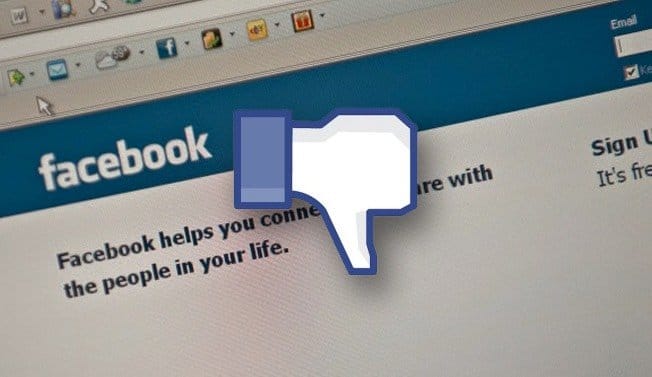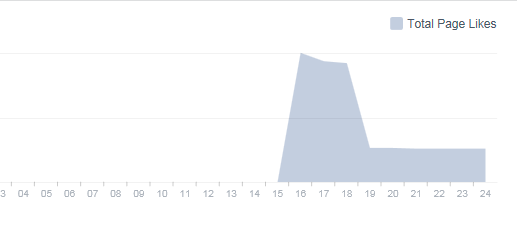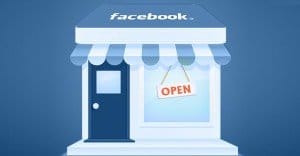 Written by ContentPowered.com
Written by ContentPowered.com
Earlier this month, Facebook rolled out a new like counting algorithm that has many Facebook page admins beside themselves with worry. Many business owners logged in to find a particular message on their page home. “We Remove Some Fake Likes” they say. “We recently protected your Page against fake likes to make sure your audience remains authentic.”
In other words, Facebook drops your like count because they have removed likes from your pages. There are three particular reasons why a person’s like may be removed, and while they don’t all fall under the heading of “fake”, they all trigger the banner.
Reason #1: Removing Fake Accounts
This is the most common trigger, though it often happens in waves. When Facebook pulls a fake fan purge, it often makes headlines, like this one from 2012. Facebook also has a low-volume constant scan for fake accounts to remove, but the big purges are the ones that are really noticeable as a page owner.
Reason #2: Deactivated Accounts
This one makes sense. When an account is deactivated, it’s still there, ready and waiting for the user to come back. Users can come back and reactivate their account, or they can put it in the queue to be deleted permanently.
A deactivated account doesn’t lose its likes. How would a user feel if they had a bunch of pages they liked, only to find that list purged when they returned from their Facebook vacation? But from the business perspective, keeping those likes is detrimental. A deactivated user can’t see and respond to posts or messages.
Facebook has already been filtering comments made by accounts that have been deactivated. This helps businesses avoid wasting time responding to comments that can’t become conversations.
Reason #3: Deceased Users
When someone who has a Facebook page dies, there are a few options that can be taken. The page can be ignored, as many people do when Facebook isn’t a central part of their life. They can have the page deleted or deactivated, if they know the login information and can click the right buttons. Finally, they can memorialize the account. This action require providing Facebook with contact information and an obituary, and it prevents identity theft or vicious trolling that can be harmful to friends and family of the deceased.
Like a deactivated account, a memorialized account isn’t valuable from a business perspective. The user can’t engage with brand posts, and seeing them doesn’t do any good. Therefore, Facebook is taking action to remove them from business reckoning.
Who is Hit Hardest
How can you tell if your business is at risk of having a significant number of likes removed? Well, in this specific update, with the deceased and deactivated account removal, small businesses aren’t as likely to be affected. In general, the older your page is, the more likes you will have from accounts that have since been deactivated.
At the same time, if your fan base is generally older, or your target audience is older, you have a higher risk of people dying. That’s not to trivialize the deaths of younger Facebook members, but a page for a senior citizen’s home is more likely to lose followers due to death than a kid’s clothing store.
Of course, if you’ve purchased fake likes from a shady seller on Fiverr or something, you’re at a much higher risk of a significant number of your followers disappearing whenever Facebook rolls out a new update or purges a bunch of fake fans.
Don’t Be Worried
If you logged into your page and saw this message about lost fans, don’t worry. Chances are it was just the removal of a few shut down or memorialized accounts. You shouldn’t see a serious dip at all. Most businesses will see a hardly noticeable shift, maybe a dozen or so accounts, maybe even less. Some businesses won’t be hit at all.
Facebook’s removal of fake likes, meanwhile, is a benefit to your business. For one thing, it’s really hard to remove them yourself. In some cases, if you want to remove more than a handful of fakes, you have to get into weird code exploits and near-hacks of the Facebook code. It’s far more effort than it’s worth.
Facebook removing the accounts for you is a great thing, because you probably couldn’t remove those accounts on your own, and they’re hurting your engagement rates and your viral reach.
This will, in the short term, likely increase your organic reach. Your posts will reach more real, active users than before, leading to more exposure, more likes, more shares, more comments and more visibility. There’s just one caveat; this doesn’t affect Facebook’s ongoing slow decline in organic reach. While your short term reach will increase, you’ll likely see it return to its decline over the next several months.
Looking Forward
What should you do moving forward?
First, don’t worry about the hit if it hasn’t happened. Facebook primarily rolled out this update on March 12th. If your likes haven’t decreased yet, they won’t until Facebook does another major purge. At least, no more than normal fluctuations.
Second, don’t buy fake likes. Use high quality like sellers or run advertisements yourself, as both result in targeted real people rather than clickfarm fakes.
Third, don’t worry about trying to minimize the number of deactivated and memorialized accounts. You can’t exactly tell people not to die, can you? Unless you’re a company selling safety equipment. Then maybe if you boost your product’s popularity, you can help with the problem. As for deactivated accounts, most are deactivated for reasons outside of anything your brand can control. Just do what you can to get people on your mailing lists rather than on Facebook; that way you’ll have a connection even if they delete their account.
Beyond that, there’s nothing you should do differently than normal Facebook marketing advice. Post good content, curate good content, use visual content, and so forth. The better your page, the more you will grow.





